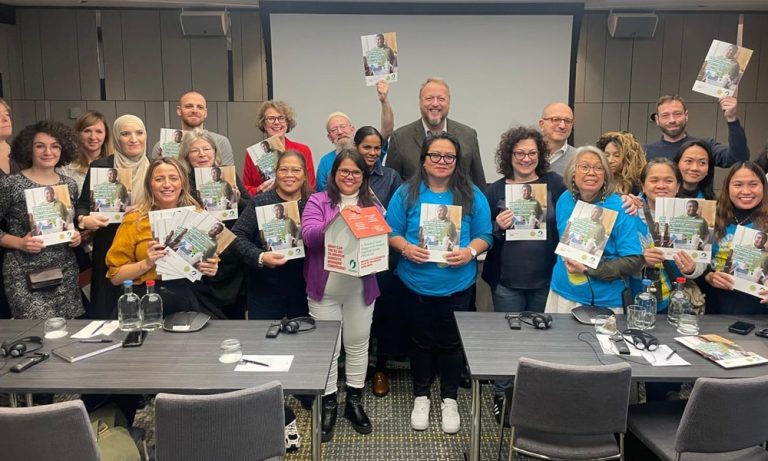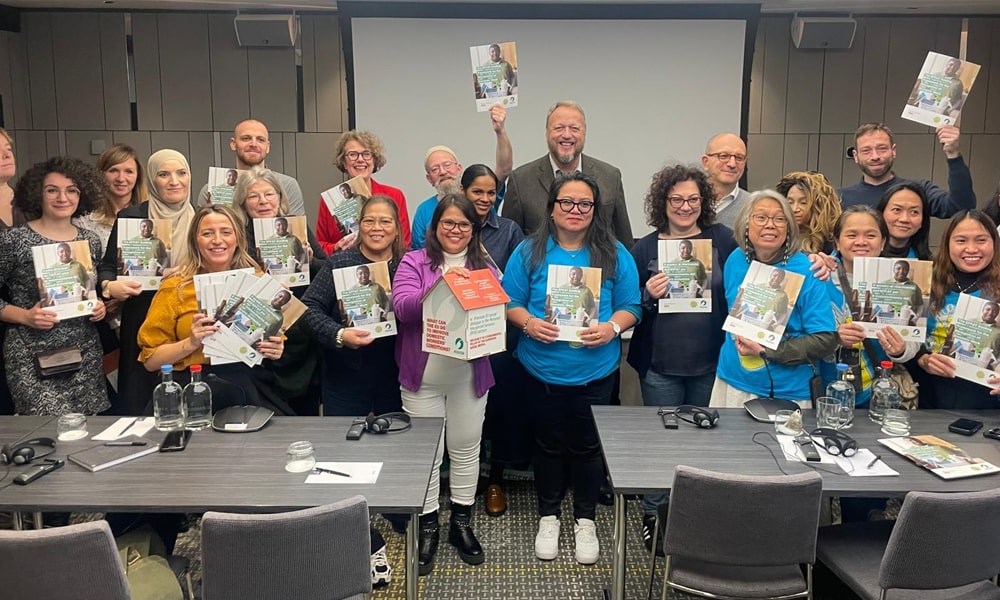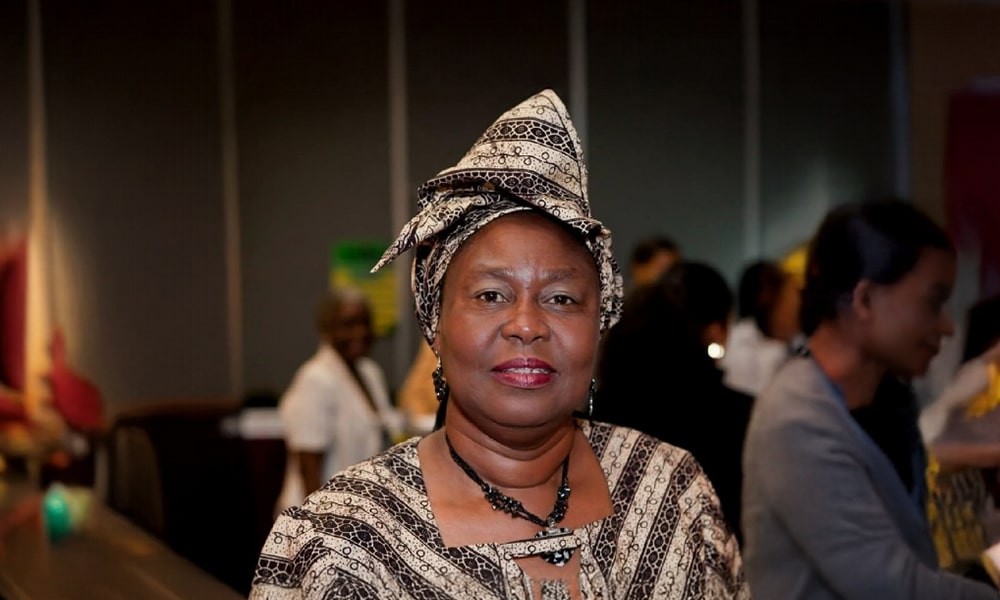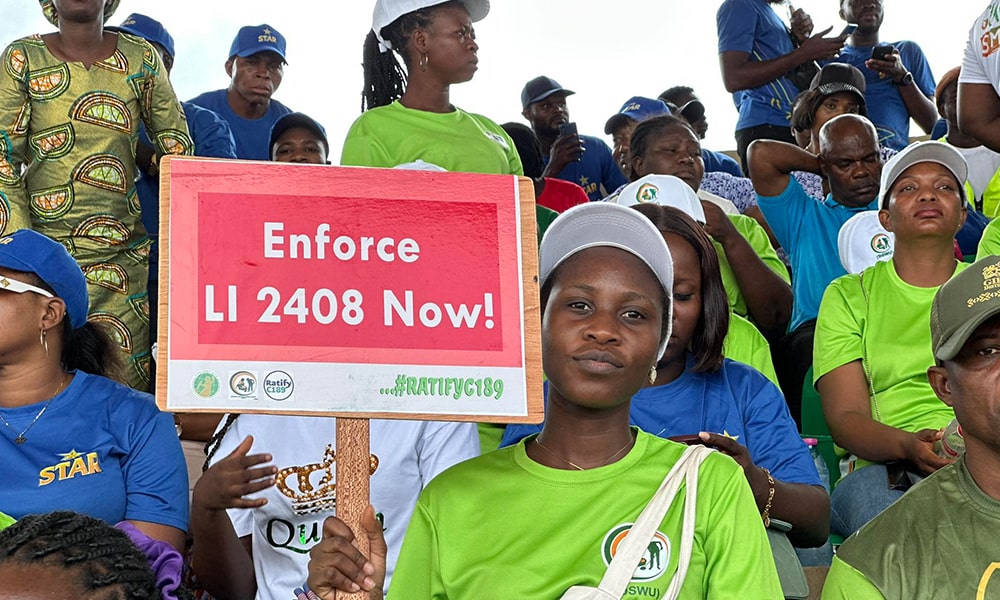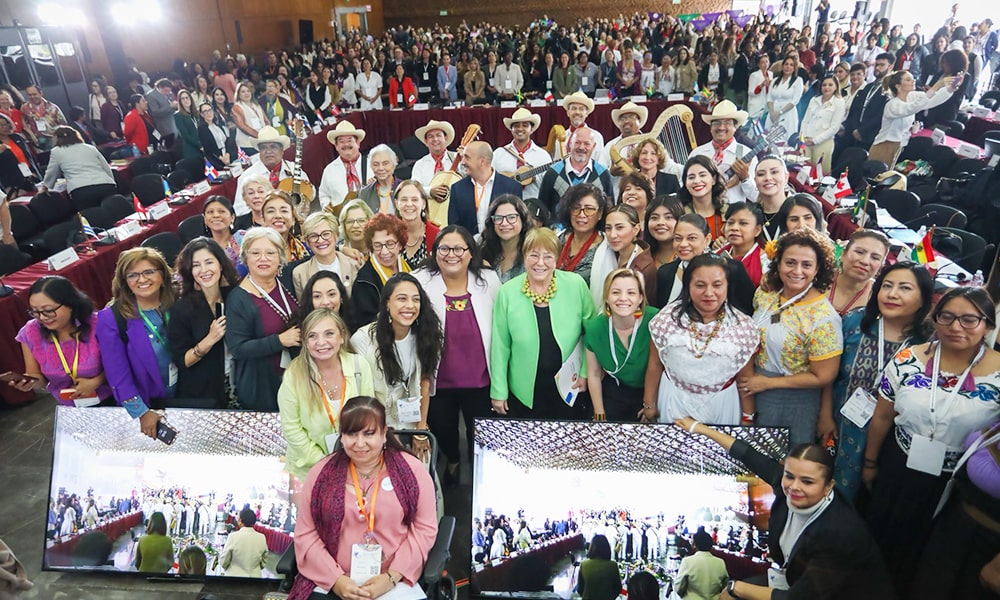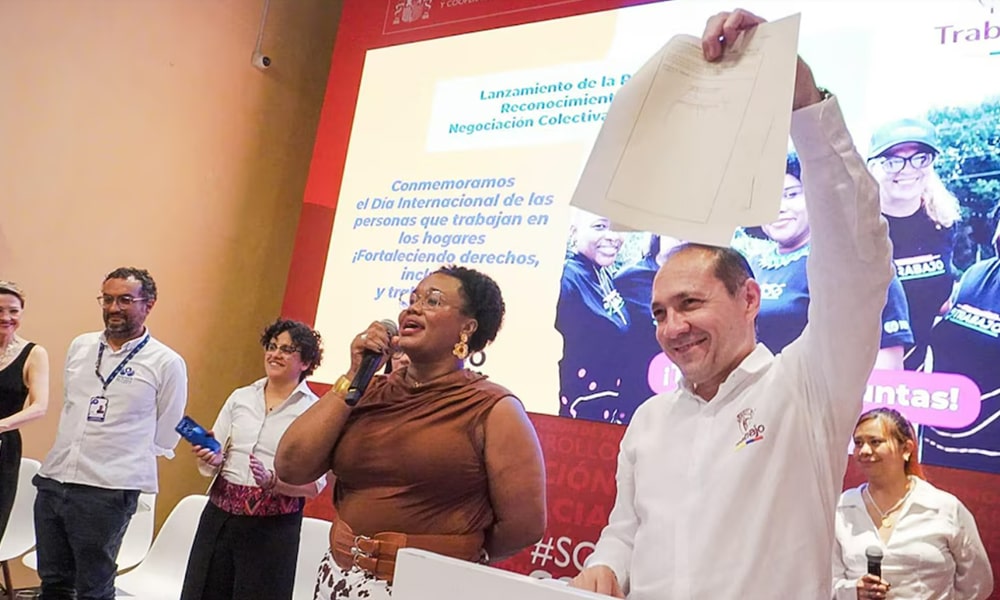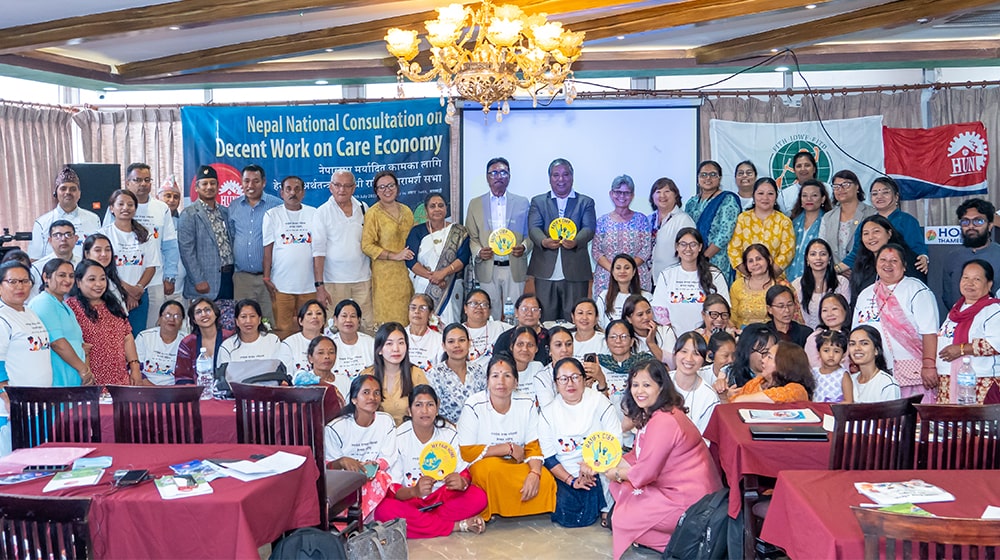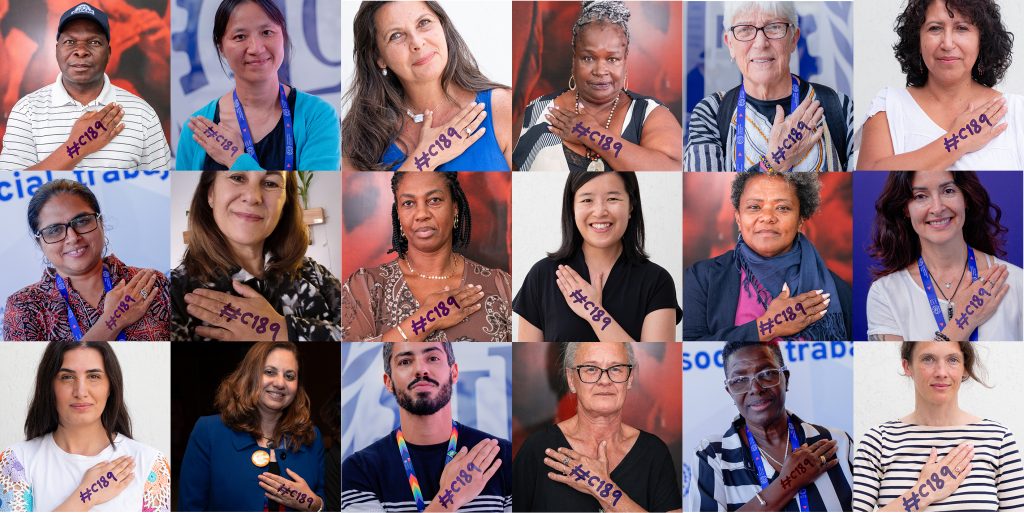
In this era of care—defined by a growing need for care and an increasing reliance on domestic workers to meet it—the economic and social value of their work should be indisputable: globally, our sector accounts for 25% of the care workforce and 4.5% of all employed persons. As affirmed in the ILO Resolution concerning decent work and the care economy (2024), domestic workers play an essential role in sustaining life, enabling millions of people to participate in the labor market and contribute to economic growth. And yet, they remain largely unrecognized, undervalued, and underprotected.
The widespread misconception that domestic work is “unproductive,” “unskilled,” or not even real work, combined with the longstanding discrimination faced by those engaged in it—based on gender, race, ethnicity, class, caste, or migration status—has led to the total or partial exclusion of domestic workers from legal and social protections, the lack of effective implementation or weak enforcement of existing legislation, and high levels of non-compliance. As a result, domestic workers often endure poor working conditions, including low pay, long working hours, lack of access to social security, as well as various forms of abuse, violence and harassment, and even forced labor.
ILO Convention 189, adopted in 2011, marked a milestone in the long struggle of the domestic workers global movement, as it explicitly recognized domestic work as real work (wage employment, performed in a specific workplace and within an employment relationship) and also enshrined fundamental labor rights for domestic workers, on an equal footing with other categories of workers. In the past fourteen years—thanks to the relentless mobilization of domestic workers worldwide—39 countries have ratified C189 and many countries have recognized domestic work as work, bringing domestic workers under national labor laws. However, in practice, domestic workers still face major decent work deficits:
- 8 in 10 are in informal employment, with no labor or social protections.
- 36.1% are excluded from labor laws.
- 50% are not legally entitled to social security.
- 46% have no legal right to a minimum wage, and 49% are not entitled to regulated working hours.
- 1 in 3 domestic workers in informal employment is covered by labor laws, but non-compliance keeps them informal.
- On average, domestic workers earn only 56% of what other workers earn—and just 45% if informally employed. Informality doubles their likelihood of living in poverty.
- Migrant domestic workers, especially those with irregular migration status, face greater risks of exploitation and abuse due to discriminatory policies that exclude them from legal protections and from the right to freedom of association.
- New digital labor platforms expose domestic workers to new forms of labor precarity and informality.
On this International Domestic Workers’ Day, we call on governments to:
- Ratify and effectively implement ILO Conventions 189 and 190.
- Ensure that domestic workers are covered by national labor laws and social security systems on equal terms with other workers, regardless of their employment or migration status.
- Promote formalization through skills recognition; effective inspection and enforcement mechanisms; inclusive and tailored social security schemes; incentives and simplified registration procedures.
- Guarantee domestic workers’ right to organize and bargain collectively.
- Foster tripartite social dialogue for the design and implementation of all policies related to domestic workers, ensuring their voice and representation.
- Adopt migration policies and programs grounded in the standards of C189, ensuring safe and rights-based labor migration pathways for domestic workers.
- Combat all forms of discrimination, violence, and harassment in domestic work.
- Regulate the operations of digital labor platforms to ensure decent working conditions for platform-based domestic workers.
As outlined in the recently launched IDWF’s Theory of Change to Achieve Decent Work for Domestic Workers in the Era of Care, even in challenging situations and times of despair, domestic workers have responded with resilience, creativity, and collective power to move forward and achieve their goals: rights, recognition, and visibility as real workers. And we will keep walking that path—committed to improving domestic workers’ lives and building a better society for all.
“When the women that are at the bottom of the socio-economic pyramid rise up to elevate the recognition of their rights, the rest of the women above in the pyramid win, hence domestic workers organizing must be supported and uplifted.”
Adriana Paz Ramírez, IDWF General Secretary
#DomesticWorkIsRealWork

